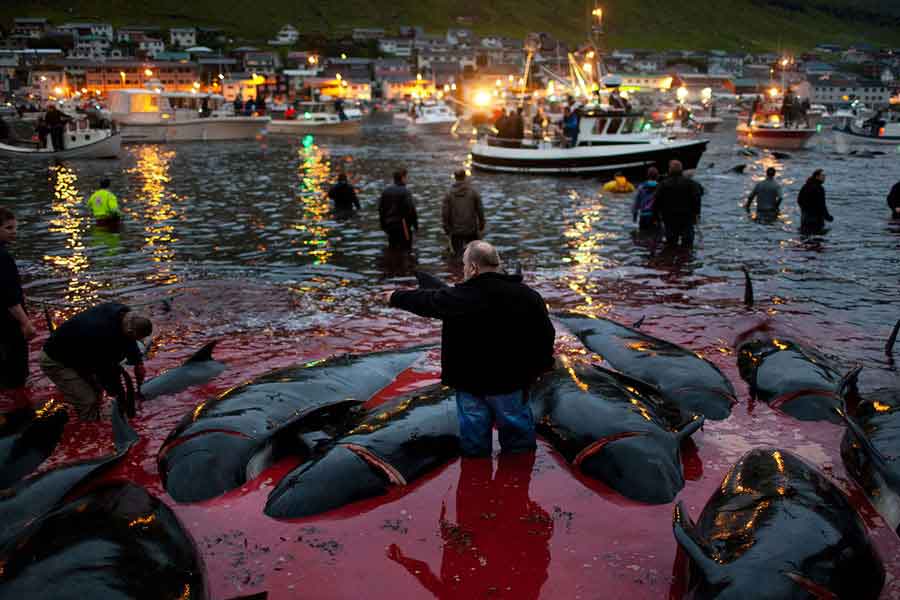
The archipelago of the Faroe Islands was for many years the birthplace of whale hunters. These islands, located halfway between Iceland and Scotland, on the threshold that separates the Atlantic from the Arctic Glacial Sea, are now politically united with Denmark, and their population has a medium per capita income. This income is mainly based on herring and cod fishing.
But the inhabitants of the islands, former whale hunters, refuse to let go of this tradition. So, for several days each year, they organize true festivities where parents teach their children how to hunt whales.
The chosen victims are the pilot whales (cetaceans up to 6 meters long) which are driven onto sandy beaches by fishermen in boats during noisy hunts that often last for several hours.
All the animals, including pregnant and lactating females, are dragged ashore with steel hooks embedded in their heads. They are slaughtered in true bloodbaths, and the meat is distributed among the inhabitants. In the last 287 years, more than 250,000 pilot whales have been killed, with an average of 1,200 specimens per year in the last decade.
Although this type of hunting is not economically necessary, the people of the Faroe Islands argue that it is a tradition on the island for parents to teach their children how to hunt whales. This custom has a significant relationship with the concept of «machismo» in this society.
That is why it is common to see young children celebrating, drenched in blood, for having killed their first whale. Undoubtedly, traditions are very important and should be respected. But should the global society tolerate this kind of demonstration? In the same framework of traditions, should we allow the headhunters of the Amazon to continue with their practices so that their children do not lose their roots?
Men all over the planet should understand that knowing how to kill will not make our children more men, only more foolish. True valor is shown by respecting and teaching what should be the oldest of human traditions: respect for life.
«One cannot defend what one does not love, and one cannot love what one does not know.»

